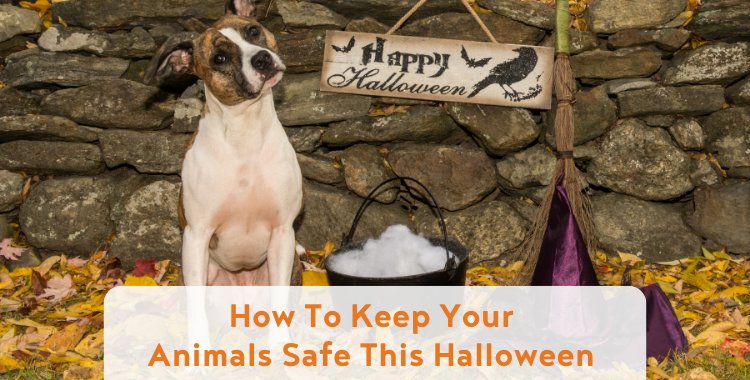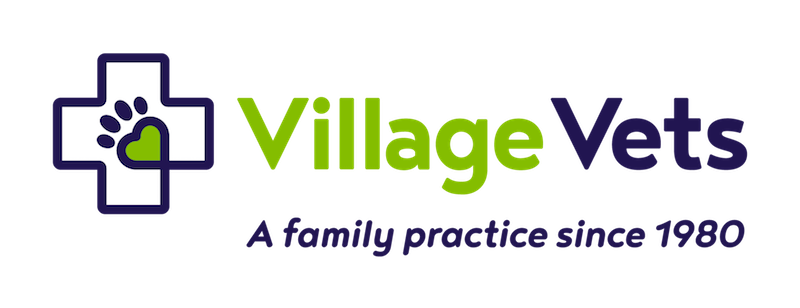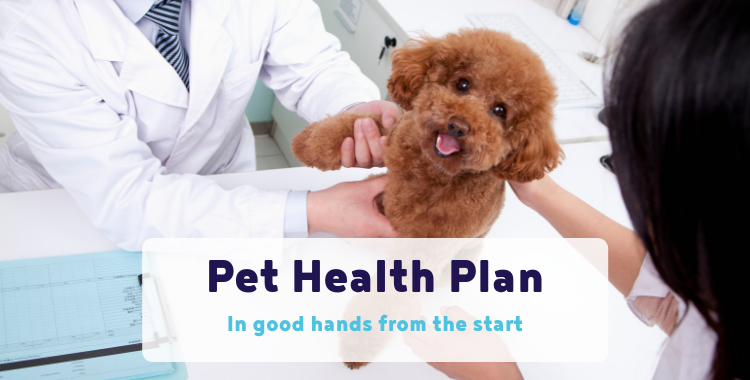
Halloween can be a fun event for families and their pets.
However, if safety precautions aren’t taken, it can also be a hazardous time for our beloved companions.
According to Village Vets, calls increase by 12 percent during the week of Halloween, making it among the busiest times of year for emergency veterinary practices.
Here are some practical yet potentially life-saving tips that can help protect your pets this Halloween.
1. Dangerous Pet Costume
Your safest choice in a pet Halloween costume would be a loosely tied bandana; however, if you choose to dress up your pet, fit your dog or cat with a simple approach.
Pets can be uncomfortable and become tangled in tight-fitting costumes with strings, ties, and belts.
Some pet costumes are also highly flammable.
Difficulty in mobility can lead to bodily injury.
Never leave a pet unattended while wearing a costume. Small (or large) parts of a costume can become chewed and ingested and can in turn potentially can be life threatening to your pet.
2. Halloween Decorations and Fire Hazards
If you love to decorate your home in the Halloween spirit, take into consideration what you're putting on display and where the decorations will be placed. Easy-to reach decorations — or candles — can be eaten or knocked over, potentially leading to choking, electrical shock, burns and a household fire. Err on the side of caution while decorating and choose pet-safe products.

3. Noise Affects Pets
Dogs and cats can become skittish and show signs of anxiety on Halloween due to the incessant ringing of the doorbell, constant noise and chatter just outside the door, and fireworks set off in the street.
In addition, the barrage of strangers dressed in unfamiliar and scary costumes can alarm some pets, increasing their anxiety. Take extra precaution on Halloween: gauge your pet's typical reaction while greeting visitors and decide if you should leave your dog or cat in a back room of the house which will keep them calmer throughout the evening.
4. Sweets and Chocolate Are Toxic
Sweets and chocolate are never good for dogs or cats and on Halloween there is an increased chance that your beloved animal may consume treats meant for trick or treaters
- Chocolate and Xylitoln a sweetener found in many sweets, can be extremely toxic to pets.
- Lollipops and their sticks can be choking hazards and cause a painful obstruction if ingested, this may require surgery to remove.
- Sweets wrapped in plastic and other types of wrapping can also lead to chocking or cause an obstruction and cause stomach upset.
Easy solutions to prevent accidental toxicity or ingestion:
- Keep pet-safe treats on hand to satisfy your curious pet.
- Make sure all candies are out of your pet's reach.
- Consider leaving your pet in another part of the house where exposure to hazards won’t occur.
5. Lost Pets
Halloween isn't an ideal time to let your dog or cat wander outside unattended.
Take caution and keep pets indoors with you, or escort them outside on a leash if you plan on including your pet in Halloween festivities. Sudden noises and strange-looking costumes can also spook your pet, causing them to run away, therefore, it’s always a good idea to make sure your pet has a collar and identification tags in case you become separated.
If you haven’t already opted to have your pet microchipped now is a great time. Should your pet ever go missing an ID tag and/or a microchip can help quickly reunite you with your dog or cat.
Emergency Care is Available
Don’t wait to have your pet treated in the case of an emergency, always know where your nearest vet is on hand.
If you suspect your pet has consumed a toxic substance during Halloween make sure you bring your animal straight into see your Vet.
Village Vets Veterinary Surgeon, Aoife Caulfield recommends:
‘If you have a nervous pet, please keep them inside to ensure that they are in a safe, quiet space to retreat if they are upset.
You can visit your local vet for advice and medication in extreme cases.
Some more confident pets might enjoy the festivities.
Ensure they can do safely by making sure they don’t have access to human treats and avoid Halloween costumes.
Above all else, please make sure your animal is microchipped and secure at home throughout the Halloween period.





